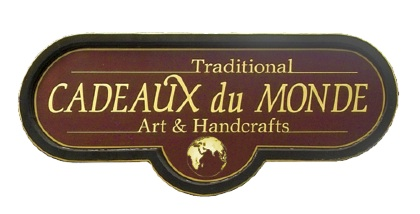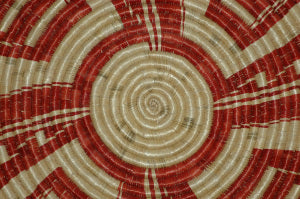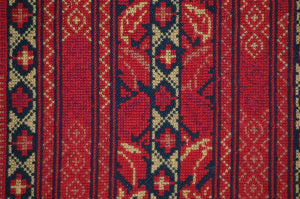CADEAUX du MONDE's Blog
Fair Trade--Practically Speaking February 26, 2011 12:00
When my partners and I opened our gallery, CADEAUX du MONDE, back in November 1987, the term being used for fair trade was "alternative trade". At the time, it was a concept that was not part of the mainstream marketplace. We have devoted a great deal of time to educating our customers about the concept with the intent of raising awareness and fostering the idea of conscious consumers.
As part of that education process, we developed a handout that we have used for over 20 years to explain how we conduct our business that is still posted in our gallery today as well as on our website. We are very proud that "fair trade" has now become a recognized standard for ethical business as well as our role in shaping that standard. Even so, there still seems to be some confusion around just what exactly "fair trade" means and how that applies to running a commercial business.
Subscribing to the KISS theory (Keep It Simple Stupid), I would like to share the following--the definition of the adjective "fair" as it applies to "fair trade" and the CADEAUX du MONDE description of Alternative Trade (Fair Trade).
fair
What is Alternative Trade?
Alternative trade means fair trade--it's as simple as that. To go a little bit further, when an African basket weaver sets his or her price for his or her baskets, the alternative trader does not use his or her superior economic position to force a reduction in price. In that way, he or she trades with an artisan as an equal--no exploitation is involved in this type of business relationship. The artisan is accorded the dignity due an equal.
Through alternative trade, fair prices paid directly to artisans from developing nations (Africa, Asia, the Caribbean, Central and South America and the South Pacific), village-based development is encouraged which means access to clean water, health care and education for the local population. In addition, alternative trade fosters global awareness as consumers are informed about the peoples and cultures who craft the exquisite folk art items that they purchase.
The consumer at an alternative trade store can shop with confidence knowing that his or her purchase has not impoverished, but rather enriched the lifestyle of a village artisan overseas.
CADEAUX du MONDE is Rhode Island's only green fair trade international folk art gallery. For a more detailed and extensive definition of "fair trade", check out the International Fair Trade Association (IFAT). The majority of artisan cooperatives that are represented in CADEAUX du MONDE's gallery are members.


